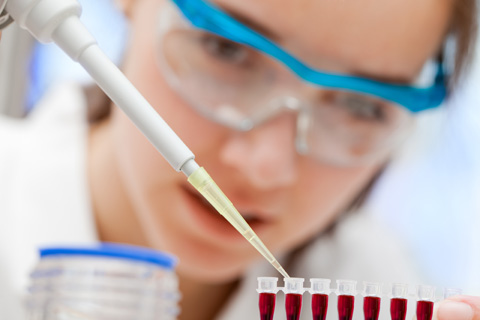Genetics, family history and the predisposition of cancer.

Cancer is a tricky and unexpected disease. When and who it will strike can never truly be confirmed ahead of time, even when family history makes a cancer diagnosis seem imminent. Despite inherited genetic defects that may cause cancer to run strong in certain families, the role of lifestyle and environmental factors cannot be underestimated.
The media has been abuzz with stories about family ties to cancer, but Mary Cianfrocca, DO, director of the Breast Cancer Program and medical director of the Clinical Cancer Genetics Program at Banner MD Anderson Cancer Center in Gilbert, says hereditary cancers are much less common than people may think.
“Only about five to 10 percent of all cancer is known to be hereditary based on genetic testing that can identify a specific cancer-causing gene.”
Hereditary cancer can be more aggressive and difficult to treat; however, carrying an inherited genetic defect is not a guarantee that cancer will develop. It simply means the odds are higher and that considering preventive measures is important.
While one’s hereditary risk of cancer isn’t something to be ignored, it is important to balance that information with the knowledge that 80 percent of cancers occur sporadically, generally as a result of an environmental trigger or toxin. “In such cases, an external factor like sun exposure or smoking causes a gene to go awry, ultimately triggering the abnormal cell growth that leads to cancer,” Cianfrocca explained.
The remaining 20 percent of cancers are either hereditary or familial with a genetic predisposition that cannot be linked to a specific identifiable cancer-causing gene.
Determining one’s risk of hereditary cancer requires genetic counseling to evaluate the health history of first-degree family members (parents, siblings and children) as they have the closest genetic makeup. A presence of cancer younger than age 50, two or more relatives on the same side of the family with the same cancer or cancer syndrome such as breast and ovarian cancer, or a rare cancer show an increased risk. Certain ethnicities also have a greater risk of hereditary cancer. Genetic counseling is the first step in genetic testing.
“Knowledge is power and the information derived from genetic counseling and testing helps ease uncertainty,” Cianfrocca said. “The hardest part truly is showing up and having the talk.”
Genetic testing requires a simple blood draw and DNA analysis to identify the presence of a particular gene. For more information about the Clinical Cancer Genetics Program at Banner MD Anderson or to schedule an appointment with a genetic counselor, call 480-256-6444.
